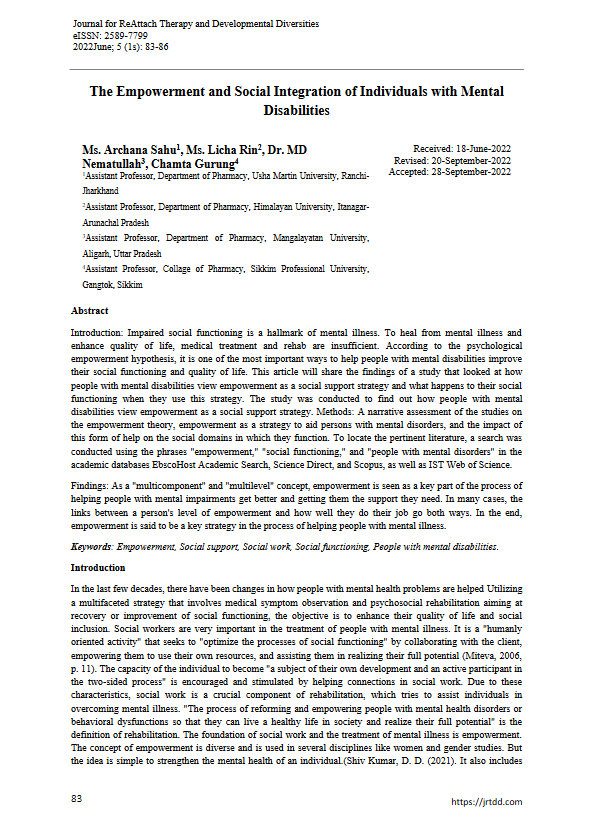The Empowerment and Social Integration of Individuals with Mental Disabilities
Main Article Content
Abstract
Introduction: Impaired social functioning is a hallmark of mental illness. To heal from mental illness and enhance quality of life, medical treatment and rehab are insufficient. According to the psychological empowerment hypothesis, it is one of the most important ways to help people with mental disabilities improve their social functioning and quality of life. This article will share the findings of a study that looked at how people with mental disabilities view empowerment as a social support strategy and what happens to their social functioning when they use this strategy. The study was conducted to find out how people with mental disabilities view empowerment as a social support strategy.
Methods: A narrative assessment of the studies on the empowerment theory, empowerment as a strategy to aid persons with mental disorders, and the impact of this form of help on the social domains in which they function. To locate the pertinent literature, a search was conducted using the phrases "empowerment," "social functioning," and "people with mental disorders" in the academic databases EbscoHost Academic Search, Science Direct, and Scopus, as well as IST Web of Science.
Findings: As a "multicomponent" and "multilevel" concept, empowerment is seen as a key part of the process of helping people with mental impairments get better and getting them the support they need. In many cases, the links between a person's level of empowerment and how well they do their job go both ways. In the end, empowerment is said to be a key strategy in the process of helping people with mental illness.

